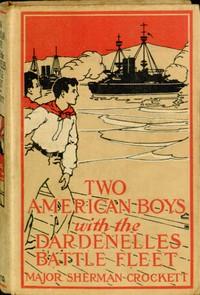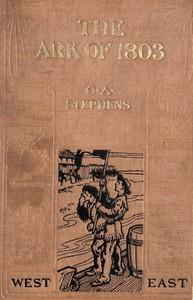Read this ebook for free! No credit card needed, absolutely nothing to pay.
Words: 54617 in 20 pages
This is an ebook sharing website. You can read the uploaded ebooks for free here. No credit cards needed, nothing to pay. If you want to own a digital copy of the ebook, or want to read offline with your favorite ebook-reader, then you can choose to buy and download the ebook.
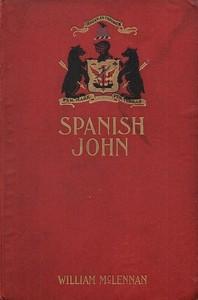

: Spanish John Being a Memoir Now First Published in Complete Form of the Early Life and Adventures of Colonel John McDonell Known as Spanish John When a Lieutenant in the Company of St. James of the Regiment Irlandia in the Service of the King of Spain Ope
member, why my father should so punish me for lying--and so on until we reached Crowlin, as our house was known.
It was in the month of August when I left home, I being just twelve years of age, and Angus McDonald of Clanranald, who was to be my comrade, fourteen. He was a much bigger lad than I, and at home could handle me readily enough, but from being so much with my Uncle Scottos, who was never done talking of what he had seen in foreign parts, I was in a measure travelled, and no sooner were we out of the country than Angus gave the lead to me, which I kept in all the years we were together.
My Grandfather, AEneas of Scottos, gave me his blessing and a bright new guinea and much good advice; my father kissed me fondly, and, with many a direction for the road, gave me a letter to Father Urbani, the Rector in Rome; my sister Margaret hung about my neck and refused to be comforted; but at last, with a cousin of Clanranald's and a party of their people, we started for Edinburgh.
My Uncle Scottos rode with us as far as Inchlaggan, and when we said good-bye he commanded me, sternly, "Don't let them make a little priest of you, Shonaidh, or I'll baste you with a wooden sword when you come home!" Then he swore somewhat in Spanish and kissed me on both cheeks, and rode off with his head down, waving his hand at the top of the hill, though he never looked back.
Our stay in Edinburgh with Bishop Hay, and our journey to Boulogne and thence to Father Innes, of the Scots College in Paris, with whom we lodged for three weeks, produced nothing of interest; indeed, we did not fall in with much I can now recall until we drove into Marseilles and were there lodged in the house of the Benedictins.
Here we saw much to wonder at--soldiers in uniforms, sailors in petticoats, galley-slaves in chains, Jews in gabardines, and others dressed in such outlandish habits we could not help staring at them, though had we worn our own Highland clothes I do not believe any would have remarked on us; and we heard, I doubt not, every language on earth save the Gaelic, which is but little spread beyond the Highlands.
A more lively people than the Marseilles would be hard to meet. On the quay one evening we marked a fellow carrying something like a long, narrow drum, which he tapped with his fingers as he strolled. Presently he stopped at a clear space, and, drawing a little pipe from under his arm, began to play both instruments at once cleverly enough. Hardly had he begun before the crowd gathered round, and on some lusty fellow setting up a shout and leaping into the middle of the space and holding forth his hand, it was caught by one, who in turn invited another, and then another, while from the tavern opposite rushed men and women fairly tumbling over one another in their haste, laughing and shouting as they came, till all were at it, footing it merrily as they swung in and out and twisted and turned in a long tail. Round the posts, jumping over the ropes that held the vessels fast, then across the street and into the tavern by one door and out at another into the street again, with such mad laughing and singing and holding forth of hands that Angus and I could stand it no longer, and so caught hold; and, though we could speak no word of their language, we could laugh as hard in English and give as wild skreighs in Gaelic and foot it as lightly as any of them. It was a grand ploy, and only ended when we were all out of breath.
Provided with money sufficient to carry us to Rome, we took passage for Leghorn, or Livorno, as they call it, in a fair-sized barque, but the dirt and the evil smells on board disgusted us beyond measure, and we almost longed for the bone-breaking coaches again. However, we were not long aboard before we fell in with a tall, decent man, a Mr. O'Rourke by name, who was an Irishman, on his way to finish his studies as a priest at the Propaganda in Rome, but the merriest and best-natured man I had ever seen. He was bigger and broader and had a greater hand and foot than any one else on board.
He laughed at our touchiness at what he called "a few smells."
"A few smells, sir?" said I--"it seems to me they are fairly crowding one another so close there's but little room for any more."
"Oh, isn't there? It strikes me you have never put your nose inside a Roman osteria on a wet day in July! Until then, my lad, you are not qualified to speak of smells in the plural. And let me tell both of you," he went on, after he had finished laughing, "you had best get your noses into training at once, for if they are going to cock up at every stink that comes under them you'll be blowing them over the backs of your heads before long, unless you do like the elephant and carry them in your trunk." Which we took to be an excellent jest, the more so as we found by evening he had two hammocks swung for us on deck near the round-house. The weather was so mild and the cabins so unbearable that most of the passengers followed our example, and even in the bow was one solitary old man, who now and then had to put up with a douse of salt water when the barque clipped deeper than ordinary.
The next day we made a closer acquaintance with our fellow-passengers, most of whom were but fearful sailors with but little stomach for anything off an even keel. In the cabin with us and Mr. O'Rourke were an Italian Count and his lady, some priests, and a Spaniard named Don Diego, with whom we soon made friends, though he was ignorant of both English and French, and had no Gaelic; but we could get in a Latin word or two, and we laughed much and made signs for the rest. Mr. O'Rourke we found to be of the same family as the gallant Major O'Rourke who was killed at Alcoy, in Spain, under the Count O'Mahony, which I knew of through my Uncle Scottos, who was an ensign there at the time; this made us fast friends, and I told him much of the Regiment Irlandia and the Irish Brigade of which he was ignorant.
Free books android app tbrJar TBR JAR Read Free books online gutenberg
More posts by @FreeBooks
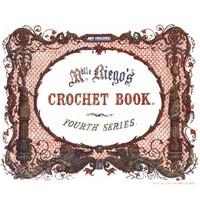

: A Passage to India by Forster E M Edward Morgan - Political fiction; British India Fiction; Race relations Fiction; India Social conditions 20th century Fiction
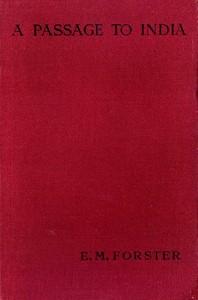

: Two American Boys with the Dardanelles Battle Fleet by Crockett Sherman Wrenn Charles L Charles Lewis Illustrator - World War 1914-1918 Naval operations Juvenile fiction; World War 1914-1918 Campaigns Turkey Gallipoli Peninsula Juvenile fiction
